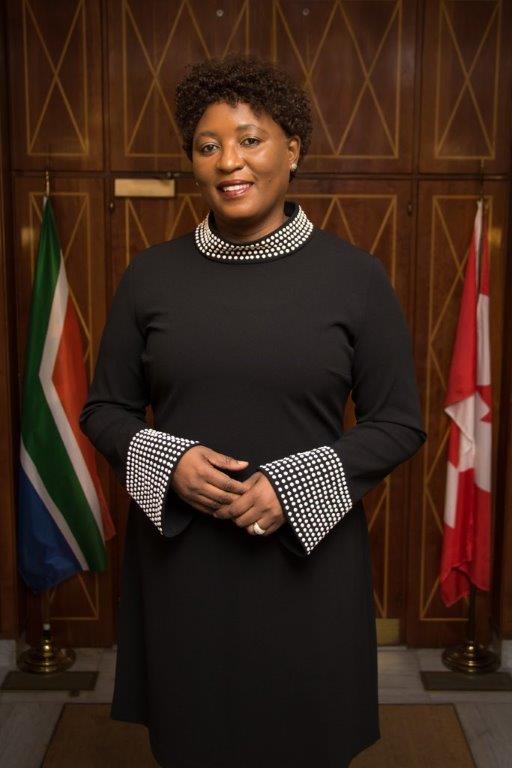
Given the rapid, global spread of COVID-19, a virus that started a world away in Wuhan, China, one cannot deny the interconnectedness of the world. The entire world is in a health crisis, and no country has been spared from the rages of the pandemic.
Such exceptional circumstances call for extraordinary measures by all countries—big and small, developed and developing—to work in solidarity to seek innovative ways to address and find solutions to the crisis. It is no wonder then that there has been so much noise about solutions to the pandemic.
In October 2020, India and South Africa initiated a proposal to the World Trade Organization (WTO) members for the temporary suspension of certain provisions of the Agreement on Trade-Related Aspects of Intellectual Property (the TRIPS Agreement) for products related to COVID-19, including vaccines. The world is faced with an unprecedented demand for medical products used in the fight against COVID-19 and underdeveloped countries are, unfortunately, last in the relief queue. The demand has far outstripped the requisite supplies, leaving poor countries in extremely vulnerable and untenable conditions. The proposal for the TRIPS waiver is buttressed also by the urgent need to develop, produce, and equitably distribute medical products. This is a matter of principle as many low- and middle-income countries still struggle to access COVID-19 vaccines.
Ways to boost vaccine production globally have been fiercely debated. South Africa and India have robust generic pharmaceutical manufacturing capacity and with more countries manufacturing the vaccine, the quicker it will be to address some of the distribution and access challenges. The director-general of the World Health Organization (WHO), Dr. Tedros Adhanom Ghebreyesus, addressing the media in January 2021, stated that vaccines give us all hope of ending the pandemic and getting the global economy on the road to recovery. He added that we can only end the pandemic anywhere if we end it everywhere.
The TRIPS agreement provides WTO members with extensive protection of intellectual property. The underpinning rationale for the TRIPS waiver proposed by South Africa and India, is that traditional intellectual property protection has no place in a global pandemic like the one we are facing. The waiver proposal has met with opposition from some high-income countries like Canada, the European Union, Switzerland, the United Kingdom, and Japan. South Africa remains hopeful for Canada’s support given both countries’ shared values for human rights. Saving lives is a human rights issue.
The countries that are resisting the temporary waiver argue that the “agreement is sufficiently flexible to address public health emergencies, including the use of exceptions and limitations for research, security exceptions, and the grant of compulsory licenses or government use authorizations.”
In support of the waiver, Dr. Tedros has aptly stated, “We are living through an exceptional moment in history and must rise to the challenge. Flexibilities in trade regulations exist for emergencies, and surely a global pandemic, which has forced many societies to shut down and caused so much harm to business—both large and small—qualifies. We need to be on a war footing and it’s important to be clear about what is needed.”
In February, African Union member states unanimously agreed on a call for the vaccine waiver. The proposal has also received the backing of many low- and middle-income countries. In early May, the United States, under the Biden-Harris Administration, joined the more than 100 countries now supporting the waiver. The Unites States advanced the argument that while it believes strongly in intellectual property protections, “in service of ending this pandemic, [it] supports the waiver of those protections for COVID-19 vaccines.”
South Africa, India, and like-minded countries argue that it is necessary to have a temporary waiver of certain provisions of the TRIPS Agreement to allow for a more efficient response to the COVID-19 pandemic. The waiver will:
- allow for an effective global response to the COVID-19 pandemic that requires rapid access to affordable medical products including diagnostic kits, medical masks, other personal protective equipment and ventilators, as well as vaccines and medicines for the prevention and treatment of patients in need;
- facilitate the transfer of technology and know-how necessary for scaling up the manufacturing of medical products and equipment; and
- ensure timely, affordable and equitable access to vaccines, diagnostics and therapeutics and facilitate increasing production.
The call for the temporary waiver of certain aspects of TRIPS prioritizes the well-being of all people everywhere at a critical time. It is an important piece of the puzzle of finding solutions to eliminate the pandemic. The proponents of the proposal are working on a revised version to accommodate some of the concerns raised by the countries objecting to the waiver. The concern is that lives continue being lost and poor countries are not vaccinating their citizens while some rich countries monopolized the available vaccinations. Surely this is the time to prioritize lives and human rights over profits.
Article originally published in The Hill Times on 02 June 2021.
Sibongiseni Dlamini-Mntambo is High Commissioner of the Republic of South Africa in Canada.